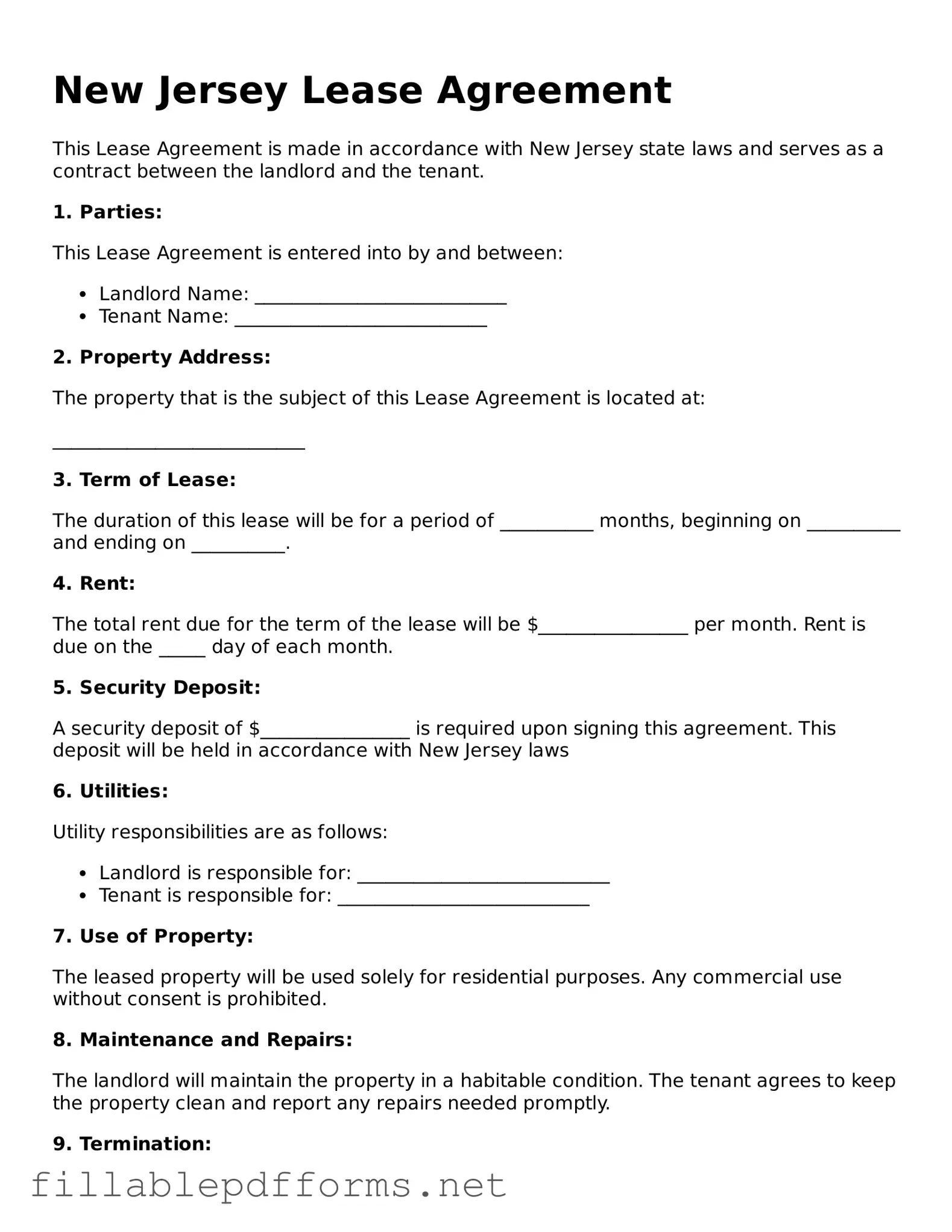Attorney-Verified Lease Agreement Form for New Jersey State
A New Jersey Lease Agreement form is a legal document that outlines the terms and conditions between a landlord and tenant for renting residential or commercial property. This form serves as a binding contract, detailing the rights and responsibilities of both parties. Understanding this agreement is essential for ensuring a smooth rental experience in New Jersey.
Launch Editor Here

Attorney-Verified Lease Agreement Form for New Jersey State
Launch Editor Here

Launch Editor Here
or
▼ Lease Agreement PDF
Almost there — finish the form
Complete Lease Agreement online fast — no printing, no scanning.